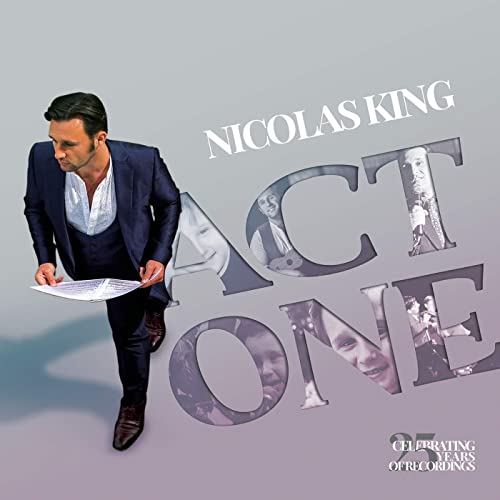
By Marilyn Lester . . .
Billy Stritch: Billy’s Place
When you’ve got performing in your blood it’s not likely a pandemic is going to get you down. So, when live performances stopped a year ago, Billy Stritch got into gear entertaining online, at home, with his weekly Billy’s Place shows. It was only natural, then, to immortalize a selection of tunes from this endeavor, and thus was born Billy’s Place the CD. It features the artist’s favorites from the huge output of musical numbers he’s performed over the months. The mix of twelve tunes is delightfully eclectic, including a few of Stritch’s own compositions, such as “Billy’s Place,” the show’s theme song, a delightfully bouncy up-tune with clever lyrics. His “Since You Left New York,” written with Sandy Knox, is a superbly New York kind of tune. It evokes the heyday of piano rooms—the kind of dark, intimate night spot where cocktails were sipped to a tinkling piano into the wee hours. What’s consistent through the mix of chosen numbers is Stritch’s piano artistry. He’s got an intuitive fix on tempo, rhythm, tone, improv and more, and is wondrously the kind of player that can make that one single instrument sound like an orchestra. We also benefit greatly from the intimacy and connectedness that come through from singer to listener with just the piano augmenting Stritch’s vocal prowess.
Another boon of this solo piano turn is that Stritch the singer enjoys a well-deserved spotlight. He’s exemplary as a vocal stylist. Standards such as a smart medley of “That Old Feeling” (Sammy Fain/Lew Brown) and “I Thought About You” (Jimmy Van Heusen), and “Skylark” (Johnny Mercer/Hoagy Carmichael), are beautifully crafted. But this CD gives Stritch a chance to go beyond stylings and to dig deeper into his ability as an interpreter and storyteller. “Lazy Afternoon” (John Latouche/Jerome Moross) paired with “Estate” (Bruno Martino/Bruno Brighetti/Joel Siegel) was stirringly emotive. The choices on Billy’s Place also allow Stritch’s range to shine. His baritone’s lower register is one I’d like to hear more of and was particularly evident in “My Love Went to London” (Tony Scibetta, John Wallowtich, Johnny Mercer). And what better way to wrap up a completely delightful, enchanting collection of songs than with “Blue Again” (Wayne Haun, Joel Lindsey), the epitome of optimism—an anthem for the return to normalcy.
Billy’s Place, on the Club44 Records label is available as a CD and on all streaming music platforms, distributed by Provident/Sony Distribution.
Tony DeSare: The Tony DeSare Song Diaries Vol 1: Songs of Comfort
Tony DeSare is another pianist-vocalist who’s been performing from home during the pandemic, delivering a heartfelt song, with backstory or commentary, nearly every day of the lockdown. On March 17, 2020, he began posting his “Quarantine Diaries” to Facebook and YouTube. The process came naturally to him, since he’s been exploring and using video sharing platforms since 2006, and has a sophisticated home studio that assures excellent quality to his endeavors.
Songs of Comfort is an eclectic mix of old and new, plus three originals, “The Best You Can Give,” “Hymn for a Lost Love” and “Too Late to Say Goodnight”—thoughtful and melodically sound numbers that stand with the best of them in the annals of the modern American Songbook. His repertoire of music is vast, born of several decades of performing in bars, jazz clubs and other intimate venues, as well as on the concert stage. Whether through experience, innate personality or both, DeSare is immediately likeable. He possesses an easy, gentle baritone, and an authenticity of vocal delivery. A native, heartwarming quality permeates every one of the 15 tunes on the CD. His version of “What a Wonderful World” (B. Thiele/G.D. Weiss) is especially inspiring, while “Smile” (C. Chaplin/J. Turner/G. Parsons) is one of the purest, most direct and beautiful versions of the tune recorded over its many decades of existence. DeSare’s original instrument was the violin, reflected in his piano artistry. He’s not a fierce jazz stylist, but rather gives flare to his technique with the kind of lushness a violin provides. One of the most effective pairings of vocal and pianistic technique is a true partnership of those elements in “Bridge over Troubled Water” (P. Simon). Further illustrating his artistic creativity is a bluesy-folksy “The Secret O’ Life” (J. Taylor) with an arrangement that contains the slightest whisper of ragtime meter. Songs of Comfort is just that—a great collection of tunes to curl up with at any time.
The Tony DeSare Song Diaries Vol 1: Songs of Comfort is available on most music streaming platforms. For more information about purchase, go to www.tonydesare.com.





















